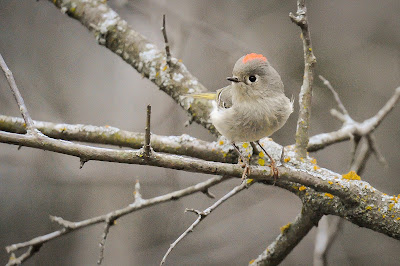For the seventh year in a row, I’m writing a devotion on
this page for Earth Day. I was tempted to write something about climate change
and the drought that has affected much of the wildlife I head out to
(potentially) photograph but have decided to use a recent lesson from the
Wednesday morning study plus photographs of one of my favorite little migrating
birds as illustration.
I’d like to focus on Psalm 19. This psalm was the final
lesson in our recent Wednesday morning bible study, Pause: Spending Lent
with the Psalms by Elizabeth F. Caldwell.
The heavens declare the glory of God;
the skies proclaim
the work of his hands.
Day after day they pour forth speech;
night after night
they reveal knowledge.
They have no speech, they use no words;
no sound is heard
from them.
Yet their voice goes out into all the earth,
their words to the
ends of the world.
In the heavens God has pitched a tent for the sun.
It is like a
bridegroom coming out of his chamber,
like a champion
rejoicing to run his course.
It rises at one end of the heavens
and makes its
circuit to the other;
nothing is
deprived of its warmth.
The law of the Lord is perfect,
refreshing the
soul.
The statutes of the Lord are trustworthy,
making wise the
simple.
The precepts of the Lord are right,
giving joy to the
heart.
The commands of the Lord are radiant,
giving light to
the eyes.
The fear of the Lord is pure,
enduring forever.
The decrees of the Lord are firm,
and all of them
are righteous.
They are more precious than gold,
than much pure
gold;
they are sweeter than honey,
than honey from
the honeycomb.
By them your servant is warned;
in keeping them
there is great reward.
But who can discern their own errors?
Forgive my hidden
faults.
Keep your servant also from willful sins;
may they not rule
over me.
Then I will be blameless,
innocent of great
transgression.
May these words of my mouth and this meditation of my heart
be pleasing in
your sight,
Lord, my Rock and
my Redeemer. Psalm 19
Commentary on the lesson included some paraphrasing that
fits with the earth theme:
“Madame Day holds classes every morning, Professor Night
lectures each evening” is a great visual on this passage: “Day after day they
pour forth speech; night after night
they reveal knowledge.” What we can learn from nature? A lot, if
we just pay attention.
When I see a ruby-crowned kinglet (similar species are
golden-crowned kinglets, and, abroad, goldcrest and firecrest.), I can’t help
but visualize God taking some items to “craft” this bird:
- a sharpened but snipped-off pencil lead for the
beak
- a paintbrush dash in vibrant red for the birds’
head
- a paintbrush dash in white to border each eye
- the tiniest straws/pipe cleaners as their little
legs
Imagining
God designing these tiny birds as a craft project is fun and puts the focus on
Him as creator. I’m sure you can try doing the same thing when you see
wildlife, especially those with “happily unexpected” details. What can we learn? Maybe this
scripture comes to mind: Look at the birds of the air, for they neither sow
nor reap nor gather into barns; yet your heavenly Father feeds them. Are you
not of more value than they? Which of you by worrying can add one cubit to his stature?
Matthew 6:26-27
Prayer:
Lord, thank you for the beauty of our natural world. Thank you for caring for us, as you care for the creatures of the earth. Help us to pay attention
to what we can learn from what we see if we just take the time. Amen.
Donna
Gustafson
(photos of ruby-crowned kinglets above taken by Donna. Click on photos to view larger.)










